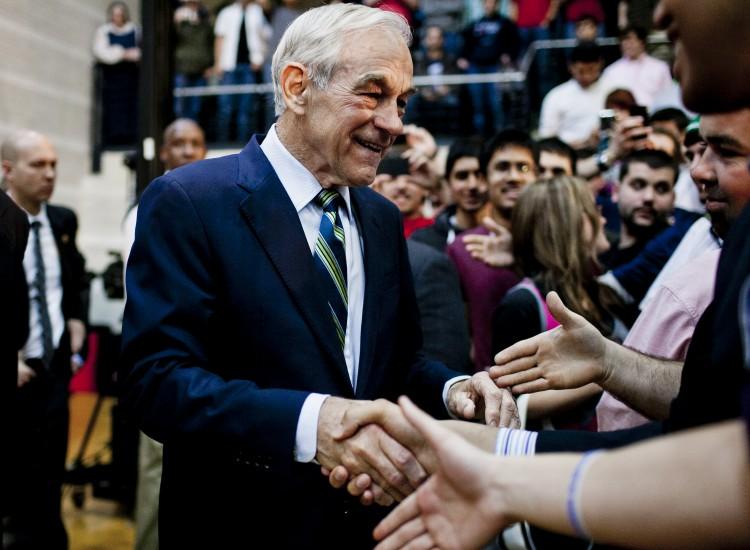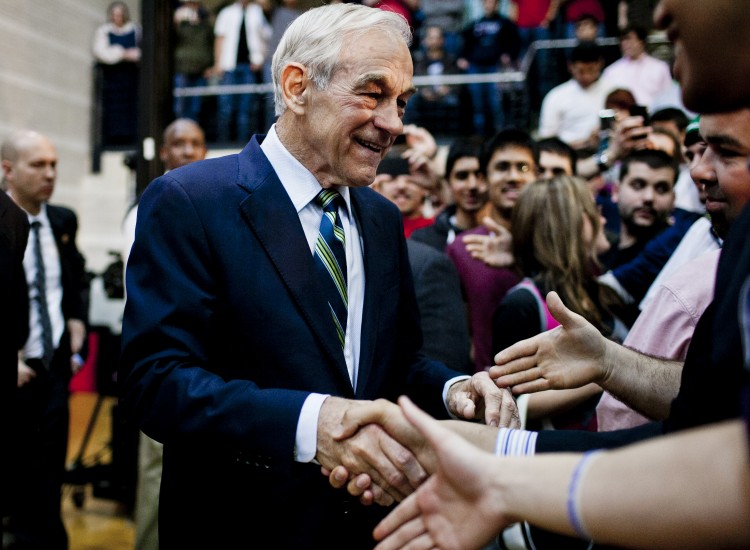The votes of ’millennials’ are gaining in importance in the 2012 U.S. elections, not only in swing states like Virginia and Ohio, but also for presumptive Republican presidential nominee Mitt Romney.
It was no accident that President Barack Obama chose to launch his campaign at a university in Virginia on May 5, or that he then flew to Ohio, a large university state, for another campaign launch.
Millennials, or those between the ages of 18 and 29, were critical to Obama’s election in 2008, says director of the Harvard Institute of Politics (IOP) Trey Grayson. “The president would not have won in Indiana and North Carolina without the 18- to 29-year-old voters,” he said in an interview televised on C-Span.
The IOP released a poll last month highlighting the attitudes of millennial voters in the current election year. According to the survey, President Obama’s approval rating is lower among millennials than it was in 2008, but has picked up considerably since the last poll conducted four months ago.
Surveying 3,000 young voters, of heterogeneous race and political leaning, the poll found that 43 percent of 18- to 29-year-olds believe Barack Obama will be re-elected come November, a reversal of a December 2011 poll, where a greater proportion believed he would lose (36 percent lose; 30 percent win).
Millennials are the “most ethnically and racially diverse cohort of youth in the nation’s history,” the Pew Research Center says, as well as being the most politically progressive age group in modern history.
“They are also the first generation in human history who regard behaviors like tweeting and texting, along with websites like Facebook, YouTube, Google and Wikipedia, not as astonishing innovations of the digital era, but as everyday parts of their social lives and their search for understanding,” said a 2009 Pew report on millennials.
President Obama used social media to great effect in his 2008 campaign and has been working hard to activate young voters in this campaign.
Young Voter Appeal
Obama commenced his election campaign with a strong focus on the subsidized “Stafford” student loans, which were due to expire in July, calling on Congress to approve the Interest Rate Reduction Act this week. Should the subsidies expire, federal student loans will double, returning to their original 6.8 percent of 2007 from the present 3.4 percent.
Democrats in the Senate and Republicans in the House have each proposed ways of paying for the continuing subsidies, which are estimated to cost around $6 billion, but neither have agreed to date on their respective proposals. But Congressional aides have indicated there is likely to be a deal sometime soon, Reuters reported May 7, despite conservative lobby group The Club for Growth calling for House members to vote down the legislation.
The threat highlights the challenges facing former Massachusetts Governor Mitt Romney in capturing the millennials’ vote as he endeavors to move from the primaries to a more central position for the general election campaign. Romney has said he supports the loans extension.
Gaining the youth vote may take more than that for Romney, however. Obama leads Romney by 12 points among 18- to 24-year-olds, and among 25- to 29-year-olds by 23 points, 45 percent to 22 percent, according to the IOP report.
Next...Ron Paul
Ron Paul
Adding to Romney’s woes is Texas Rep. Ron Paul. According to Trey Grayson, Romney’s standing amongst millennials was not only low, but equal to Ron Paul’s.
“If Congressman Ron Paul was to run as a third party candidate most of the support that he gained came from Romney,” Grayson said. “Obama stayed at about 41 percent.”
Paul has said he will continue his campaign for Republican presidential nominee, the last remaining rival to Romney, despite failing to win any states so far.
His success has surprised analysts, with much of his support coming from millennials. According to CNN exit polls in the New Hampshire and Iowa primaries earlier the year, Paul won around 47 percent of the voters under 30.
Paul also caused an upset recently, his supporters in Maine winning 21 of 24 delegate seats at the state Republican convention and 22 of 25 delegates at Nevada’s Republican convention despite the fact that Romney had won the polls in both states earlier in the year.
Grayson believes it is not only Paul’s libertarian beliefs that appeal to young voters, it is also his “plain spokenness.” “Young people find that very refreshing at time when they are very cynical toward elected officials,” he said.
Dr. John Sides, associate professor of Political Science at George Washington University, believes there is a certain naivety amongst Paul’s supporters, the Texas Rep. having a form of “symbolic appeal” of freedom to young voters.
“The challenges that Obama might face in being re-elected are due to broader conditions in the country to which all of these groups are responding to simultaneously,” he said. “They are not due to some specific problem that he may have with each of these groups.”






